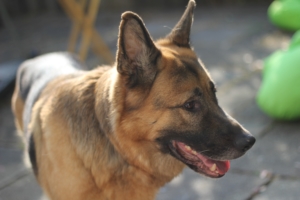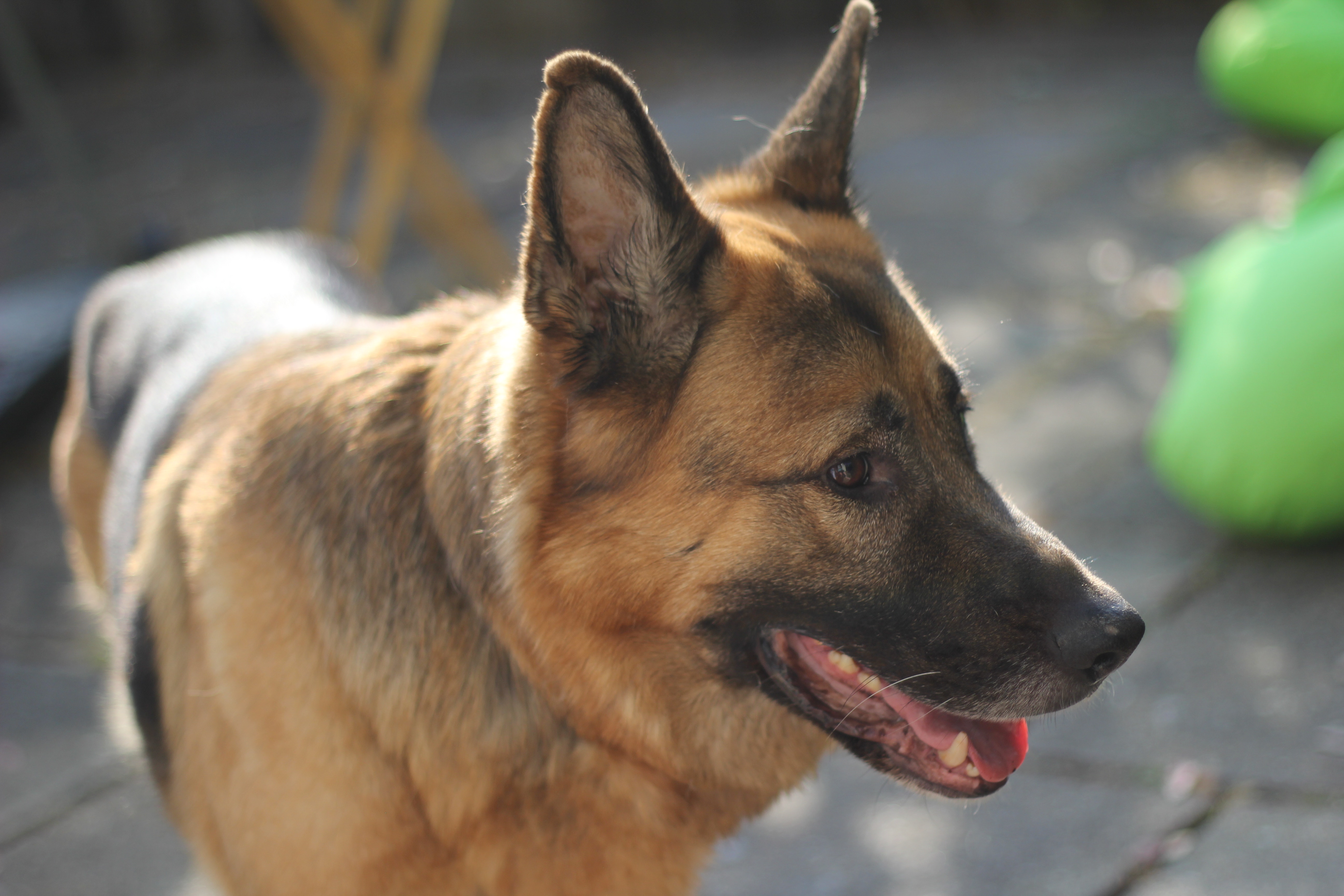
Degenerative myelopathy is common in German Shepherds.
What is DM?
Degenerative myelopathy (DM) in dogs is a condition caused by a mutated gene that leads to breakdown or degeneration of the white matter of the spinal cord. It is slowly progressive and is very similar to ALS in humans.
Unfortunately, there is NO cure, but regular, frequent physical therapy (including land-based exercises and hydrotherapy) has been shown to increase survival times in dogs! (1). This is the ONLY research-based evidence to help a pet who has DM.
Other case-based therapies include diet change, herbal therapies, canine massage therapy, electro-acupuncture, nerve regenerating supplements, and anti-oxidant supplements.
What are the signs of DM?
You may first notice that your pet crosses their back legs over each other when they walk or they may have a swaying gait. You might also see that they will knuckle their hindlimbs and develop ataxia (or loss of coordination as if they do not know where their feet are).
Other symptoms include weakness, muscle loss, or scuffing of their toenails. Historically, DM is thought to be a non-painful progressive disease. However, we have found that due to the unusual gait/ hindlimb walking, these pets WILL have trigger points and sore areas. Thus, we always include pain management protocols for each of these patients.
How do you diagnose DM:
It is often difficult to obtain a definitive diagnosis of DM, as there are many other neurologic and orthopedic conditions that present similarly. There is currently a blood or saliva DNA test available to test for the gene mutation that is thought to cause this disorder, but ultimately you must rule out other possible causes of these signs. We carry this test at our clinic and utilize this test frequently.
Your primary veterinarian will likely want to start by running bloodwork and doing x-rays. They may also recommend more advanced imaging, such as a CT or MRI.
What breeds are most at risk for developing this disease?
This disease is most commonly found in older German Shepherd Dogs, Bernese Mountain Dogs, and Pembroke Welsh Corgis. It is extremely uncommon in cats and there is no sex predisposition.
Your Pet is Suspected to Have DM. How can Healing Paws Center help?
Testing for DM: We carry the saliva or blood DM test and can perform this test at any time.
Physical Therapy:
Physical therapy is currently the only research-based known treatment to help slow down the progression of DM. A study of dogs with suspected DM that received physiotherapy had almost 5 times the survival time of dogs who didn’t receive physical therapy. Dogs that received therapy also remained ambulatory much longer than dogs that didn’t.
We will develop an individually tailored rehabilitation plan for your pet that targets their weaknesses, any painful trigger points from compensation, and more. We will also review mobility aids (such as harnesses or wheelchairs if indicated).
Acupuncture:
Acupuncture points are precisely located points that contain a large number of vascular and nerve beds. By placing small acupuncture needles at these points, we are able to increase blood flow to the area, and encourage the body to heal itself. Acupuncture helps to wake up your dog’s nerves and stimulate the release of endorphins (“feel good” neurotransmitters).
Nutrition:
Nutrition is a vital part of your pet’s health. Dogs with DM need to maintain a healthy body weight in order to improve mobility and decrease the stress on joints. We also want to include foods with high anti-oxidant properties in their diet. We work directly with a veterinary nutritionist to help meet the needs of your dog individually.
Herbal Therapy:
We will counsel you on the best herbal therapies and supplements for your pet.
We know how scary this journey can be and we want you to know you are not alone! As certified pet rehabilitation veterinarians, we are specially trained in this field, and here to lend a guiding hand and make sure your pet gets the individualized care they deserve.
WORKS CITED:
Kathmann I, Cizinauskas S, Doherr MG, et al: Daily controlled physiotherapy increases survival time in dogs with suspected degenerative myelopathy. J Vet Intern Med 2006 Vol 20 (4) pp. 927-32.






Leave A Comment
You must be logged in to post a comment.